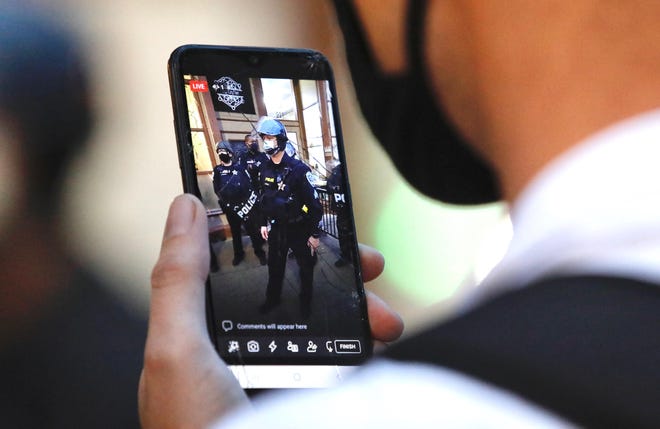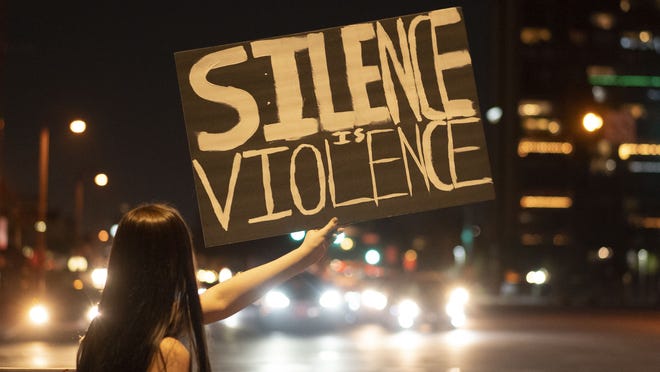Arizona Legislature won't defend law banning filming of police

No one showed in U.S. District court to defend the new law that would bar people from filming police at close range.
U.S. District Judge John Tuchi suspended the law taking effect when he ordered an injunction on Sept. 9.
As written, HB 2319 made it a misdemeanor offense to film police activity within 8 feet of it. Gov. Doug Ducey signed it into law on July 6.
Judge Tuchi sided with the media groups, including The Arizona Republic, which argued that the law violates First Amendment rights. He gave any agency wanting to defend the law a week, until Sept. 16, to come forward.
But none did.
Media companies originally filed the suit against the Arizona attorney general, the Maricopa County Attorney’s Office and the Maricopa County Sheriff’s Office, naming them as defendants. They all responded that they were not the “appropriate” agencies to defend the law.
“We only had a week from when we realized that the AG and the Maricopa County attorney weren't defending before the deadline hit,” said the bill's author, Arizona House Rep. John Kavanagh, the Fountain Hills Republican and a former police officer.
Earlier this month, Kavanaugh said he introduced the ban to protect the safety of officers.

He scrambled to find an agency to defend the law, hoping to find a national police organization that would be interested, he said.
”The AG mentioned that he wasn't the right party. I don't really know what their rationales were,” he said.
The Attorney General's Office filed a note, refusing to defend the law, with state Senate President Karen Fann and House Speaker Rusty Bowers.
Fann and Bowers said they would not be getting involved with the suit on Friday, according to a report by the Associated Press.
'Help finally give her a name':Mohave County police seek funding to identify 1971 homicide victim
“With respect to the House and the Senate, they had very limited funds,” Kavanagh said, “so I wasn't surprised that they weren't going to take on that task.”
The media plaintiffs were a little surprised by the outcome, said Matthew Kelley, the Washington D.C.-based lawyer who argued the case for media plaintiffs.
“It's not unheard of for this kind of thing to happen. So it's not totally a shock, but it is somewhat unexpected," Kelley said.
He also didn’t expect the attorney general to suggest that the court follow an obscure legal shortcut to a permanent injunction on the law.
Instead of having another hearing, the court would use the hearing they had on Sept. 9 as a basis for deciding if the injunction would become permanent, explained Kelley.
The judge was also surprised to hear the attorney general make the suggestion but was skeptical about taking that route, according to Kelley.
The judge has to set up a conference to lay out the case schedule and take in written arguments, Kelley explained.
“It might be a while before he's able to set up that conference,” Kelley said, “but what happens next is that we will seek to have the injunction made permanent.”
Reach crime reporter Miguel Torres at Miguel.Torres@arizonarepublic.com or on Twitter @TheMiguelTorres.